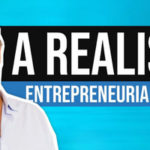Podcast: Download (Duration: 38:20 — 35.9MB)
Get Notified Of Future Episodes Apple Podcasts | Spotify | Amazon Music | Android | Blubrry | Gaana | TuneIn | Deezer | Anghami | RSS | More
YouTube presents a whole new medium and platform for podcasters. Formerly audio-only shows are now doing video, and newer shows are creating video by default.
So should you be doing podcast or YouTube? James and ValherMedia’s Charley Valher explore the benefits and the challenges involved.
They’ll talk about the considerations for those starting a podcast on youtube.
They’ll ask if remote podcast recording poses any disadvantages in a podcast interview.
And they’ll discuss why YouTube-only podcast promotion is the way to go.
Table of contents:
1. Podcast? YouTube? Or both?
2. When you’re not seeing the results…
3. Should you be in the same room?
4. The shift from audio to video
5. Youtuber versus podcaster
6. All roads leading to YouTube
7. The power of clip promotion
8. What are people searching for?
9. Do Shorts drive full-length views?
10. Lead magnet plus YouTube video
11. They’ve watched your video – now what?
12. What a media pro would do…
-
a. Leveraging interview skills
b. All-YouTube promotion
c. Playing the membership card
d. Targeting the right keyword
13. Wrapping up
Podcast? YouTube? Or both?
James mulls over the best place to share his content, whether on podcasts or YouTube.
He’s seen firsthand how YouTube can skyrocket views even with a small audience, thanks to its mighty search engine power. His surf content has gotten great response on the platform.
But, when it comes to James’s podcast episodes on YouTube, the magic is lacking – the views aren’t as high as he’d like, hinting that maybe podcasts and YouTube don’t mix well for them.
Podcasts, though, have been James’s old reliable, the backbone of their digital presence, with a back catalog of over a thousand episodes that still get tens of thousands of downloads and play a big part in keeping their audience engaged and interested.
James and his team are upping their game, with new quality standards for content and a brand new process for content on YouTube.
The question is whether YouTube and podcasts should go their separate ways or join forces. Should one even try to blend these two very different worlds? Is there a sweet spot where content can thrive on both platforms?
When you’re not seeing the results…
Charley has noticed a trend among experienced podcasters who have transitioned to YouTube, aiming to transform their audio content into video podcasts. Many of them are not achieving the level of success they anticipated.
This situation is surprising and intriguing to Charley, as he observes these podcasters either returning to audio-only formats or experimenting with new approaches to adapt to the video platform.
Charley believes that simply transferring audio podcast content to YouTube and expecting similar success is likely misguided. Podcasters, he says, need to fundamentally change their approach to be successful on YouTube. He also highlights the growing importance of YouTube in the podcasting world, suggesting that starting a new audio-only podcast today without incorporating YouTube might be increasingly challenging.
James shares his personal experiences with video content, recalling a time when he had a video channel on Apple, and his own struggles with YouTube. Despite having a significant number of videos and subscribers, his YouTube channel didn’t achieve notable success. He reflects on how his earlier short-form videos, especially those filmed in various locations, might have been more popular today with the rise of formats like YouTube Shorts and Instagram Reels. That sort of content might have been just too early for its time.
Should you be in the same room?
James wonders: would it be better to have two people physically together for a podcast? He’s heard a few times that being in the same room really amps things up, creating a vibe you just can’t get over a Zoom call.
Charley says, sure, if being in the same room with someone lights up the conversation and makes the content more engaging, then it’s a smart move. But he’s quick to point out that being in the same room isn’t the be-all and end-all for great content. It’s not so much about where you are, but how good the content turns out to be.
What really matters, says Charley, is the heart and soul of the podcast – the stuff that listeners really tune in for. You don’t necessarily need to be in the same room to create something awesome. There are plenty of top-notch podcasts out there done remotely. The main goal is to focus on making the best content you can, wherever you are.
The shift from audio to video
James reflects on the evolution of his podcast, noting its previous top 10 ranking and current popularity in Argentina, though he’s unsure why. He’s observed the significant shift in the podcasting world from primarily audio to video, mentioning that even in his recent group calls, everyone was on video, a change from the past when it was mostly audio with only a few on video.
Charley stresses the growing importance of YouTube in the podcast market, highlighting its new features that cater specifically to podcasters. YouTube now allows tagging videos as podcasts and offers a more podcast-app-like experience for premium users. He shares his personal shift from listening to podcasts on Apple’s app to watching them on YouTube, appreciating features like chapter buttons and segment-specific tuning.
James and Charley touch on the interactive and fun elements of video, like Zoom’s thumbs up and fireworks features, underscoring the engaging nature of video content. Charley strongly believes podcasters need to consider YouTube’s dominance in the market and think about how to adapt their content for this platform. They need to ask: what strategies or ‘playbooks’ should they employ to succeed in this evolving landscape?
Youtuber versus podcaster
James discusses his efforts in maintaining a high standard for his podcast, with well-researched and structured conversations, and post-publishing promotion. He’s now focusing on creating video-first content and wonders if he can repurpose these YouTube videos for his podcast, or if he needs to treat them as separate entities.
Charley differentiates between YouTubers and podcasters, suggesting they belong to distinct categories. He gives examples of successful individuals in both fields, like Mr. Beast for YouTube and Joe Rogan for podcasting, emphasizing that while one can be successful in both arenas, they require different approaches. Charley likens this to the difference between ads and SEO – both can drive traffic, but they’re distinct strategies.
Charley advises that new podcasters should prioritize YouTube from the start, thinking of their content in terms of YouTube’s requirements. For existing podcasters, there’s a legacy to consider, including an established audience on platforms like Apple Podcasts and Spotify. However, for the purpose of this discussion, Charley focuses on what it means to be successful on YouTube as a podcaster, suggesting that simply uploading full interviews isn’t enough and more strategic planning is required.
All roads leading to YouTube
When transitioning from podcasting to YouTube, effective promotion is key. Charley suggests focusing all promotional efforts on YouTube, including links in emails and social media posts. They observe that many podcasters fail on YouTube because they stick to old promotion methods and don’t actively drive traffic to their YouTube content.
James emphasizes the importance of understanding the purpose of the content, both from the customer’s perspective and the creator’s goals. He highlights the strategy of having a single, focused call to action in videos, such as linking to a specific video that serves as a lead magnet or a sales pitch, rather than scattering multiple links.
Charley and James discuss the potential of this focused approach, noting how it can significantly impact content effectiveness. Charley mentions the exciting possibilities of using paid traffic to promote specific content.
The power of clip promotion
Charley advocates for using short, engaging clips from full-length podcasts to grow a YouTube presence. This strategy involves promoting a compelling snippet of the podcast and then directing viewers to the full episode on the channel. This method is effective because it attracts viewers with a brief, interesting part of the content, encouraging them to seek out the complete episode for more.
This highlights a key difference between promoting content on platforms like Apple Podcasts versus YouTube. While Apple Podcasts promotions typically focus on full episodes, YouTube’s audience prefers shorter content. Adapting to this preference by creating and promoting shorter clips can significantly align with YouTube’s content consumption patterns, making it a powerful approach for podcasters on the platform.
Charley distinguishes between paid and organic promotion strategies. He suggests using paid ads to promote short clips, which then lead viewers to the full episode, a tactic they’re currently using with success.
Additionally, Charley touches on another approach popular among podcasters: focusing on guest-based research for episodes, implying that content creation strategies may vary based on the platform and the target audience.
What are people searching for?
Charley suggests that creating content based on what people are searching for on YouTube is a powerful strategy. He mentions the podcast ‘Mind Pump,’ which successfully employs this approach by basing their Q&A episodes on popular search terms. This method aligns the podcast content with what the audience is actively seeking, potentially boosting visibility and engagement.
An innovative approach, says Charley, is for podcasters to increase their YouTube presence by creating episodes around highly-searched topics, like balancing muscle gain and fat loss. This can be further amplified by using ads to buy keyword placements, allowing the content to appear both organically and through paid channels on YouTube, enhancing the podcast’s reach.
Charley shares his experience with using short clips from podcasts as ads on platforms like Facebook to grow their YouTube channel. However, he are increasingly focusing on using YouTube ads to promote their content within YouTube itself, leveraging keywords for better organic reach.
James corroborates this approach, noting his own success with content tailored to specific search terms and his experience with others who emphasize search-based strategies.
Do Shorts drive full-length views?
Charley discusses his experiment with YouTube Shorts, where he invested a significant amount of money expecting to drive longer video views, but the results didn’t meet his expectations. He found that five- to seven-minute clips were more effective in driving full-length views compared to Shorts. He also notes that the type of content and where it’s promoted (like Instagram and Facebook Reels) can significantly impact its effectiveness in driving traffic.
James shares his strategy of converting core video content into various formats, including Reels, blog posts, and SEO-friendly guides. This approach not only diversifies the content but also enhances its reach and effectiveness. He emphasizes the evolution of his content strategy, where the focus has shifted from primarily blog posts to a more comprehensive approach, incorporating research, scripting, filming, and multi-platform publishing.
James reflects on his extensive use of Shorts and recognizes the need for a more strategic approach in content creation. He acknowledges the impact of competitors like Hormozi, who have raised the bar in content quality and quantity, forcing others to reevaluate their strategies. For James, the future lies in being more strategic and focusing on longer-form, high-quality content, seeing it as a way to differentiate and compete more effectively.
Charley and James agree that Shorts may attract a more casual, less intent-driven audience compared to users searching for specific content on YouTube. Charley suggests focusing on more strategic content that aligns with viewer intent, especially for creators with limited resources. James acknowledges the success he’s had with Shorts but is now more interested in longer-form content, seeing it as a means to stand out in an increasingly competitive landscape.
Lead magnet plus YouTube video
Charley shares a growth strategy that has proven successful in the property space in Australia, where the creation of informative content like guides on buying properties or identifying hotspots is combined with YouTube videos. This approach involves using Facebook ads to attract leads and then directing them to related YouTube content, like case studies or deep dives, enhancing their understanding and engagement.
He emphasizes the effectiveness of pairing lead magnets (like downloadable guides) with YouTube videos to foster growth. This strategy not only draws viewers to the YouTube channel but also builds an email list for ongoing promotion of future content. Charley believes this integrated approach is highly effective for expanding reach and audience engagement.
They’ve watched your video – now what?
Charley highlights a key aspect of YouTube strategy: not only how to attract viewers to their first video but also how to encourage continued engagement with subsequent content. James acknowledges this, noting the importance of creating content that leads viewers from one video to the next, enhancing the likelihood of them subscribing and following the channel.
SEO, adds James, can play a role in linking related videos, as he’s used SEO techniques for surfboard reviews to create a chain of linked content.
James points out an advantage of including YouTube videos in email sequences: they can often be played directly within Gmail, keeping the viewer within a familiar ecosystem. Charley compares the versatility of YouTube strategies to cooking, emphasizing the myriad of approaches available for success on the platform.
James advises leveraging external platforms like YouTube to extend the reach of one’s content, while still maintaining a focus on building an email list and personal customer data. He stresses the importance of adapting content to suit the preferences of these platforms, much like he does for SEO on his own site, to effectively attract recurring subscription clients.
What a media pro would do…
So if James were to start with a blank canvas for his YouTube podcast efforts, what would Charley suggest?
1. Leveraging interview skills
Charley would begin with a change in James’ podcast strategy, recommending that he continue producing one episode per week that maintains his strong interviewing style. He emphasizes the importance of creating content that is unique and engaging, moving away from conventional approaches to maintain interest.
James says he has already implemented this change, shifting to one podcast episode per week. He enjoys such conversational episodes and fully intends to continue them, recognizing their value in his business’s retrospective and innovative exploration.
Charley reminds podcasters that audiences still appreciate a good interview, pointing to successful examples like Patrick-Bet David and Mind Pumps. He notes, too, that while these creators are still doing impactful interviews, they have also developed additional content strategies that audio-only podcasters haven’t. This shift represents a strategic reallocation of resources to adapt to changing content consumption trends.
2. All-YouTube promotion
Charley proposes a bold change in James’ promotion strategy: focusing exclusively on promoting the podcast through YouTube. He suggests abandoning promotions via Apple, Spotify, or the website, and instead directing all efforts towards YouTube. Charley believes this approach, while potentially reducing audio downloads initially, will ultimately benefit from YouTube’s algorithm and draw in more viewers.
James asks if this means directing email notifications about new podcasts to YouTube instead of his website and whether to include links to YouTube videos in descriptions rather than website links. Charley affirms this strategy – a focused approach to fully leverage the YouTube ecosystem. James, aligning with Dieter Rams’ philosophy of “less but better,” is quite willing to give it a try.
3. Playing the membership card
Charley recognizes James as an expert in memberships and suggests developing a lead magnet focused on membership strategies. He proposes a journey-based lead magnet, like a guide on how to grow memberships, and suggests using a Facebook ad to build an email list for promoting YouTube content.
Charley advises incorporating training excerpts and interviews with successful membership owners on James’ YouTube channel to enhance the lead magnet. This would create a content silo aligning with James’ business offerings, leveraging YouTube to attract and educate potential clients.
James has numerous case studies relevant to memberships and considers focusing on these as part of his content strategy. Charley agrees, emphasizing the importance of content that aligns with business goals rather than solely aiming for YouTube views.
James reflects on his success despite limited YouTube views, attributing it to high buyer intent and a resonating audience. He agrees with Charley’s suggestions, seeing them as aligned with his mentorship role and partnership with Kleq, a platform he uses for his website and memberships, indicating a focused approach towards content related to memberships.
4. Targeting the right keyword
Charley suggests targeting specific keywords related to memberships on YouTube, noting the potential audience actively searching for this content. He advises buying keyword placements for terms like “membership business model” to ensure James’ videos appear prominently in search results, enhancing visibility and engagement.
He proposes a dual approach for growth: using Facebook (or Meta) ads to build an email list and targeting specific keywords on YouTube to direct traffic to membership-related content. Charley encourages James to focus on content that aligns with these themes, potentially exploring other related topics or silos for further content development.
Discussing content strategy, Charley recommends a mix of approaches, including monthly videos on memberships, interviews, and case studies showcasing successful examples. He also suggests creating a comprehensive, ultimate video on memberships, which could serve as a central piece of content to continuously update and refer viewers to.
James plans from this point on to focus on one YouTube episode per week, create a call to action leading to his membership content, and develop membership-specific content. He looks forward to implementing these strategies, indicating a clear direction for his future content efforts.
Wrapping up
How to contact Charley for help with video, podcasting, and running paid traffic? Interested listeners can visit ValherMedia.com/review for an assessment of their marketing.
Charley stresses the significant opportunity for podcasters who haven’t yet adapted to new strategies, and highlights the potential for growth on YouTube.
James has other ideas he’d like to discuss with Charley, so look for more of his appearances on the show.
Liked the show? Leave us a review on iTunes













Leave a Reply